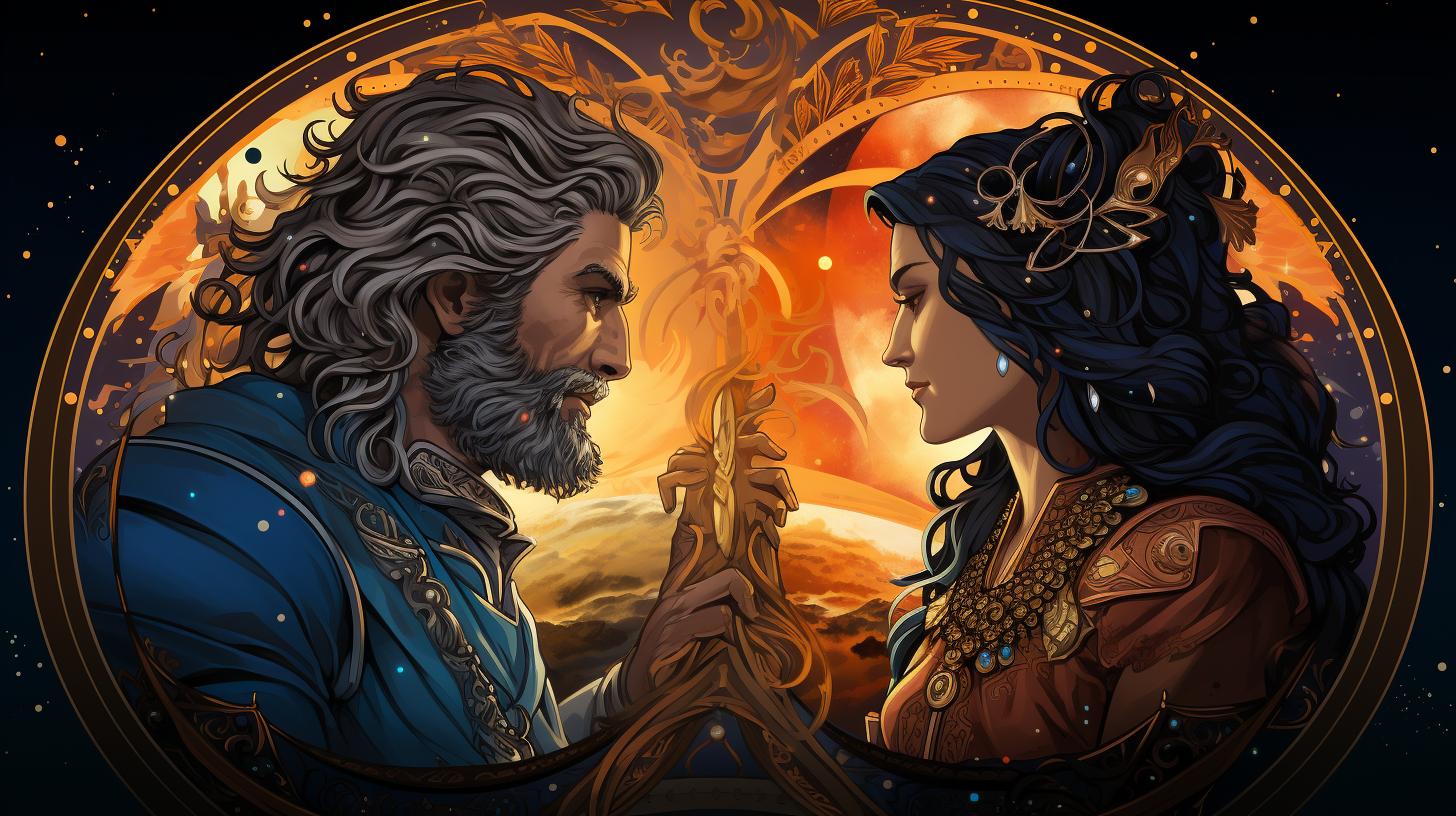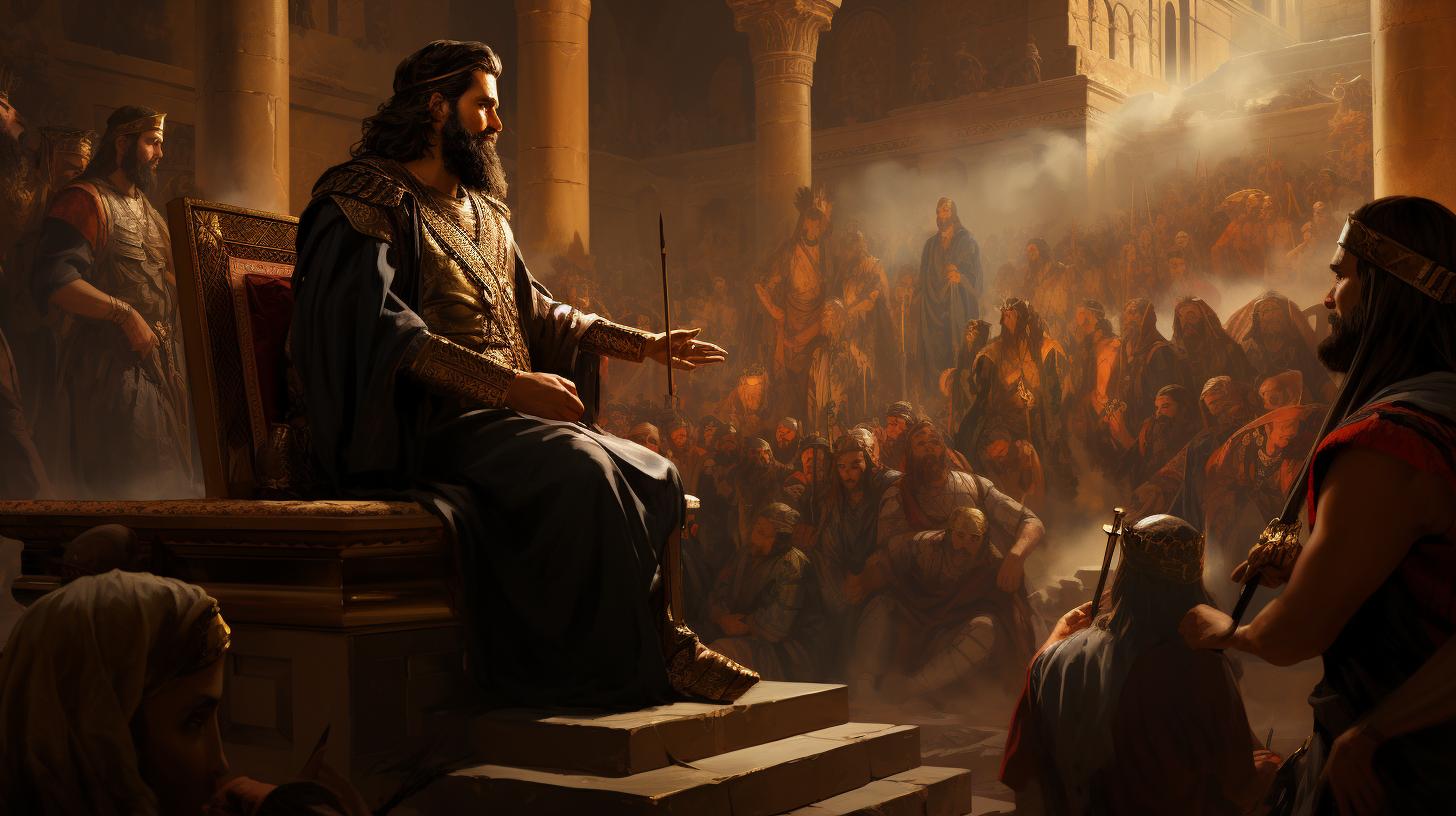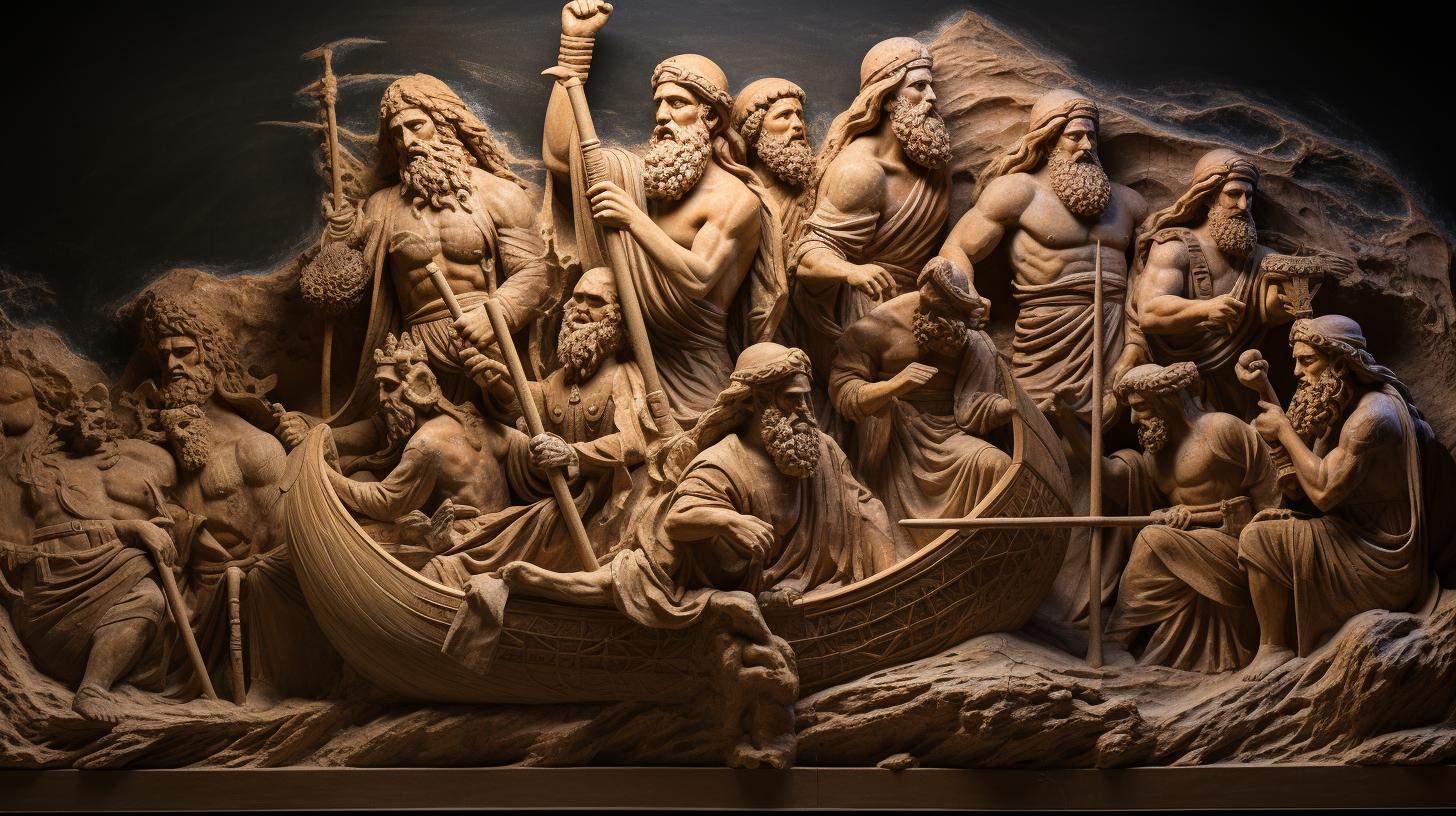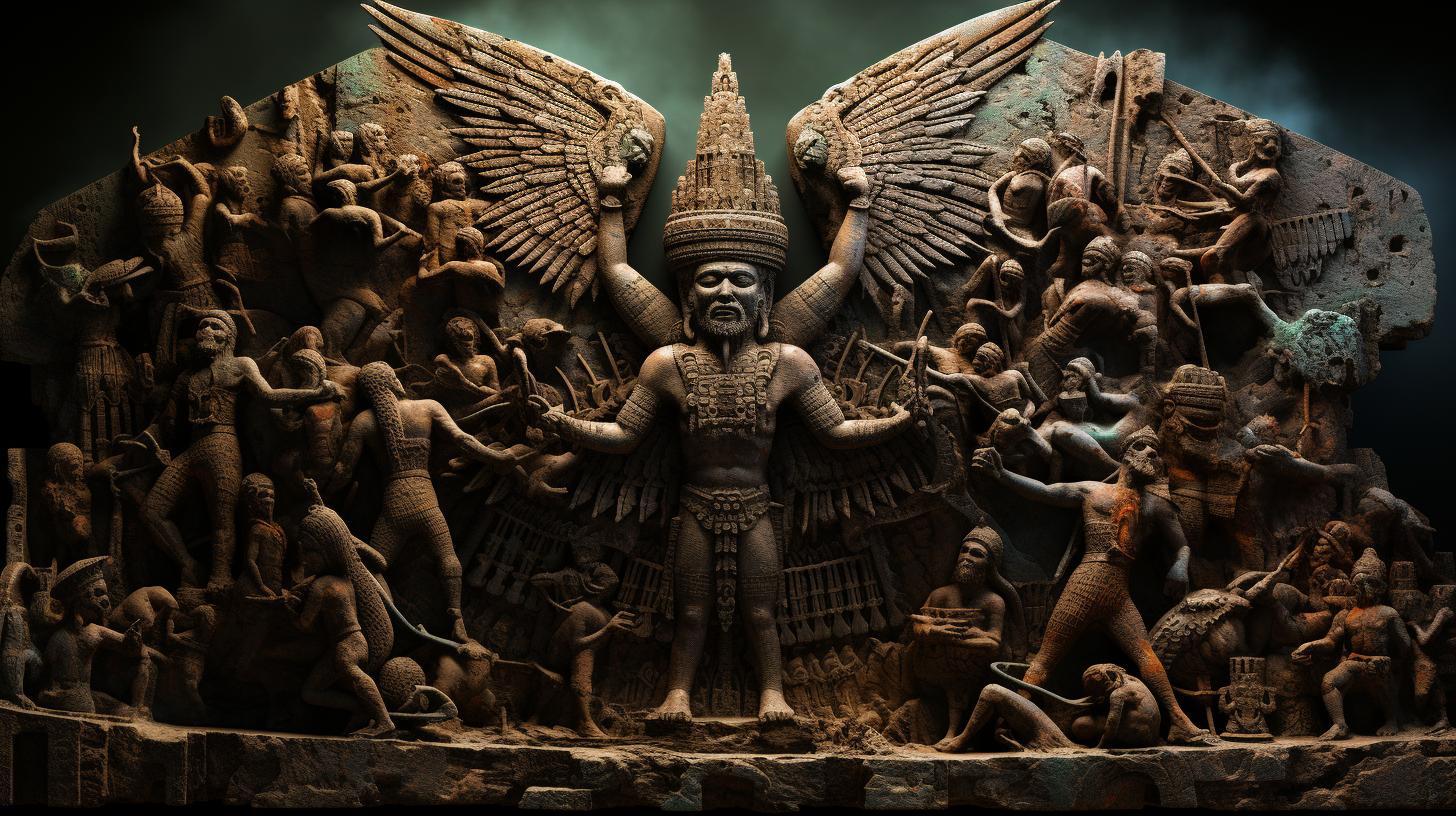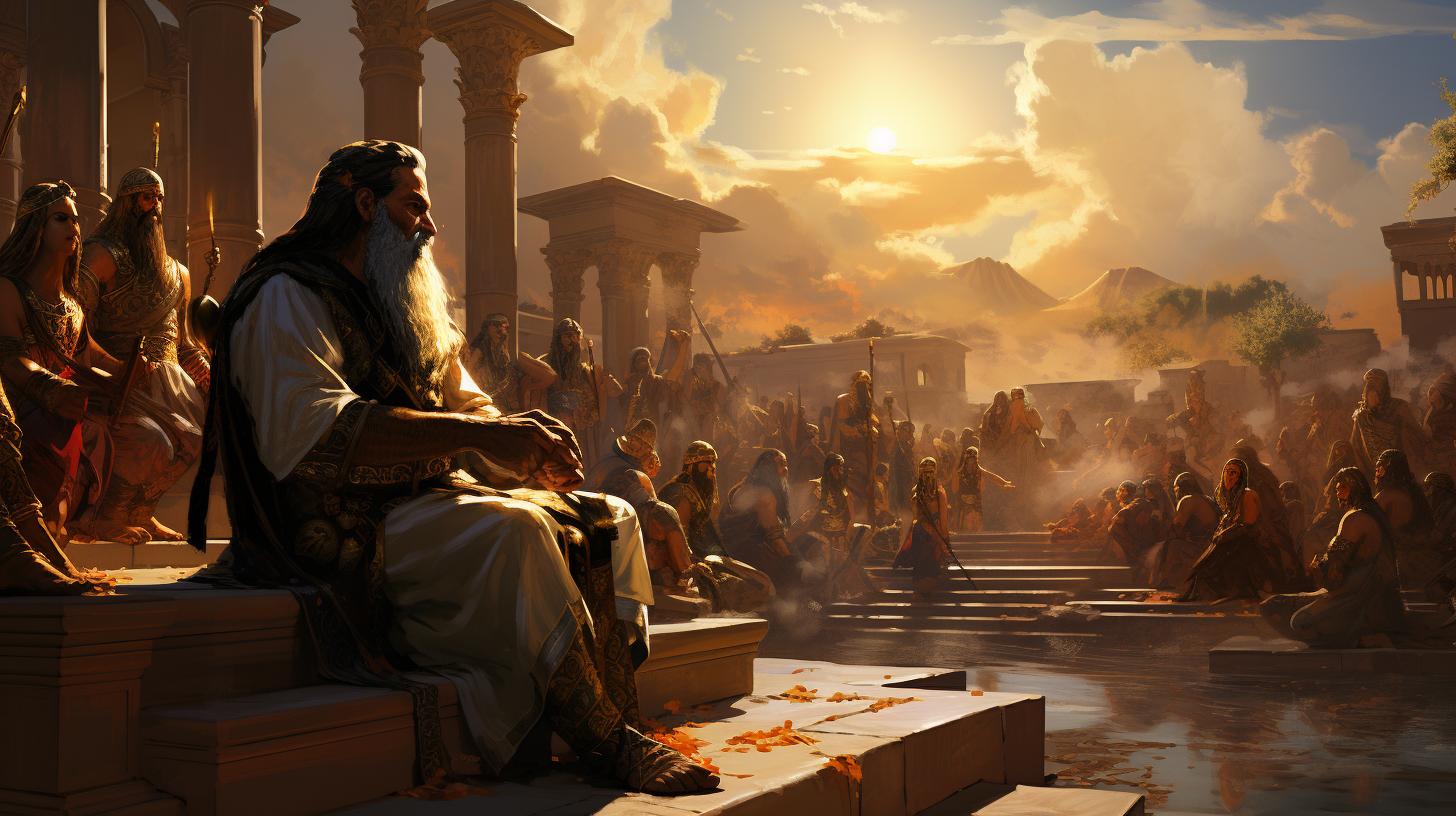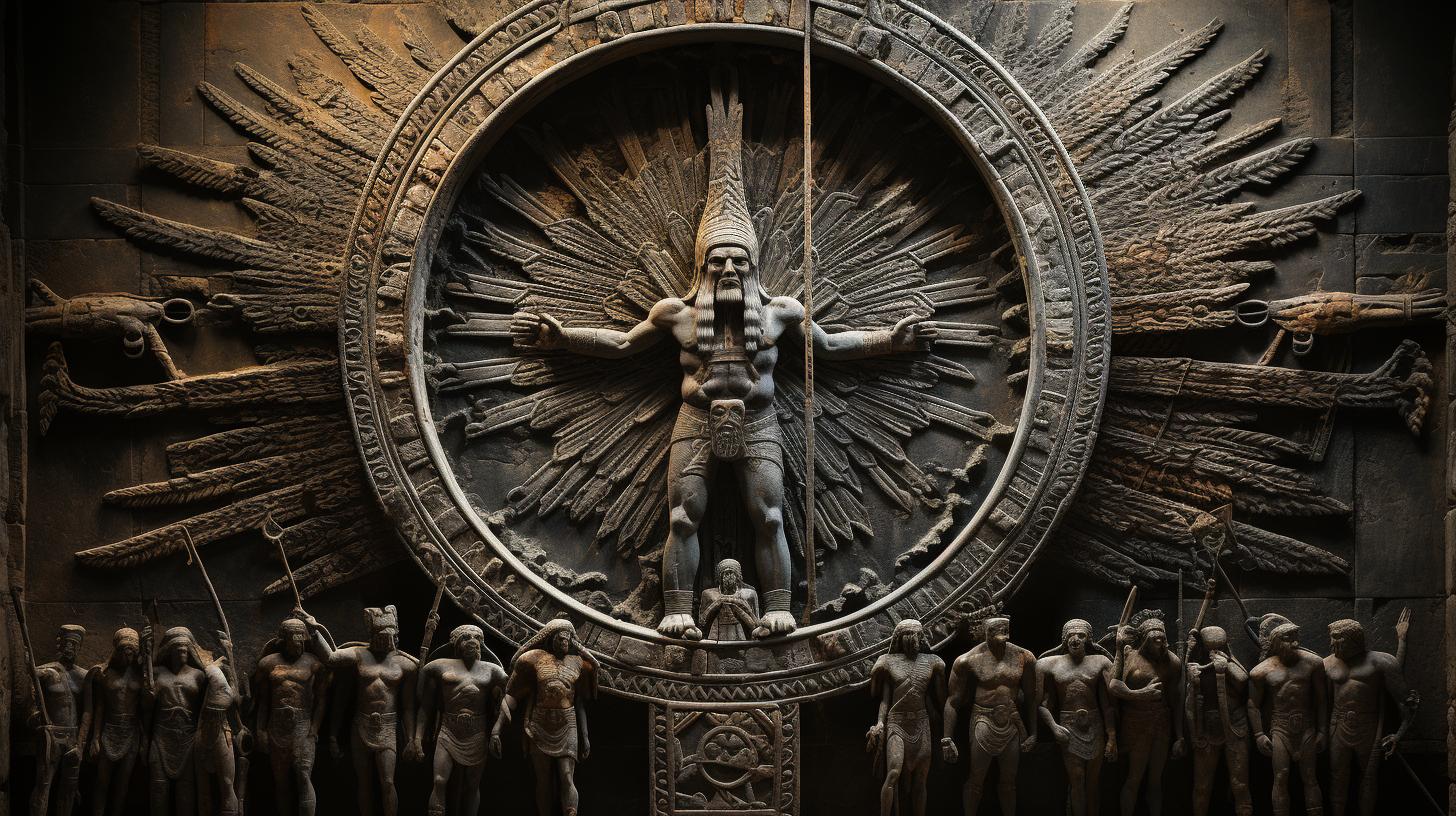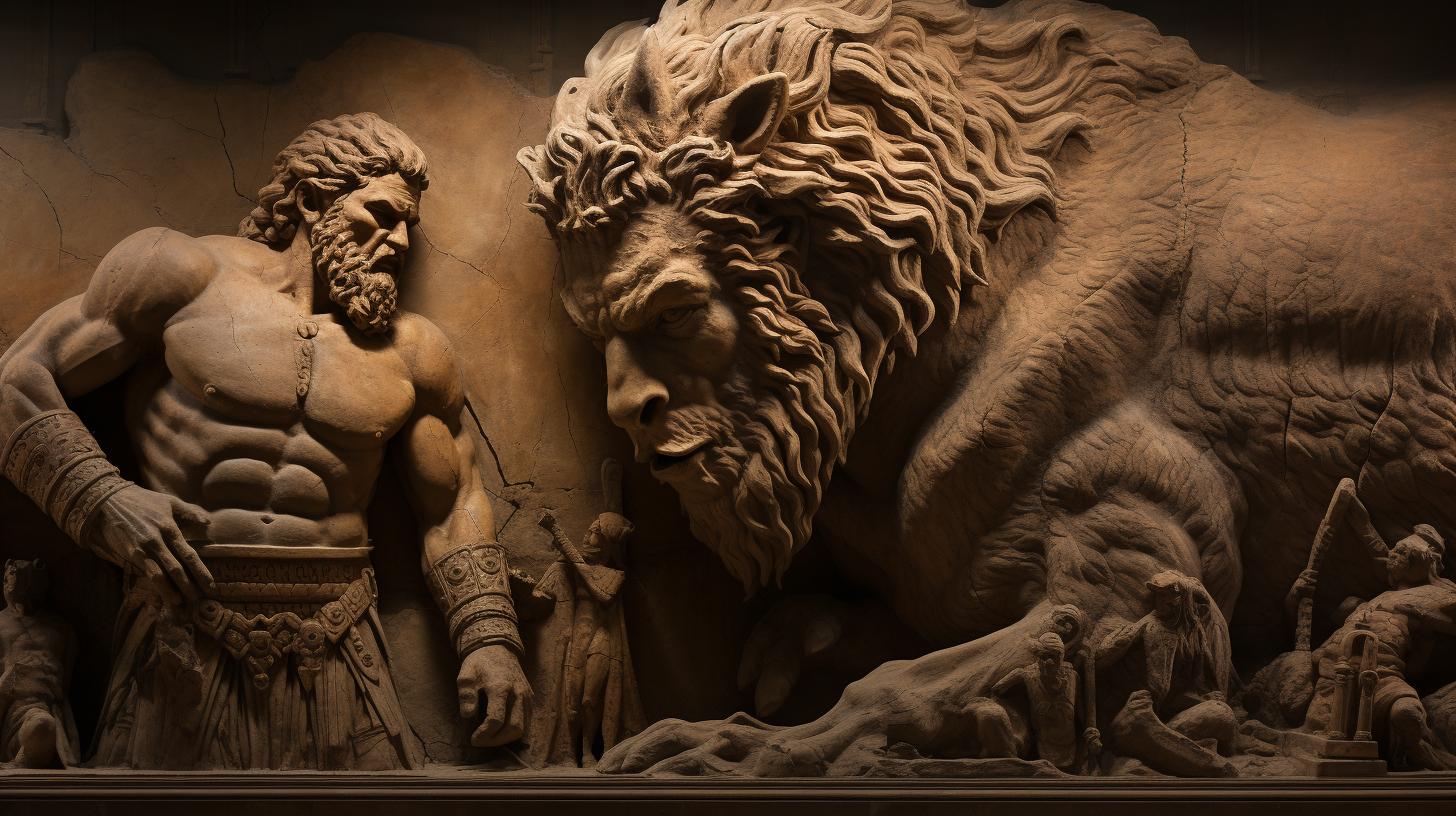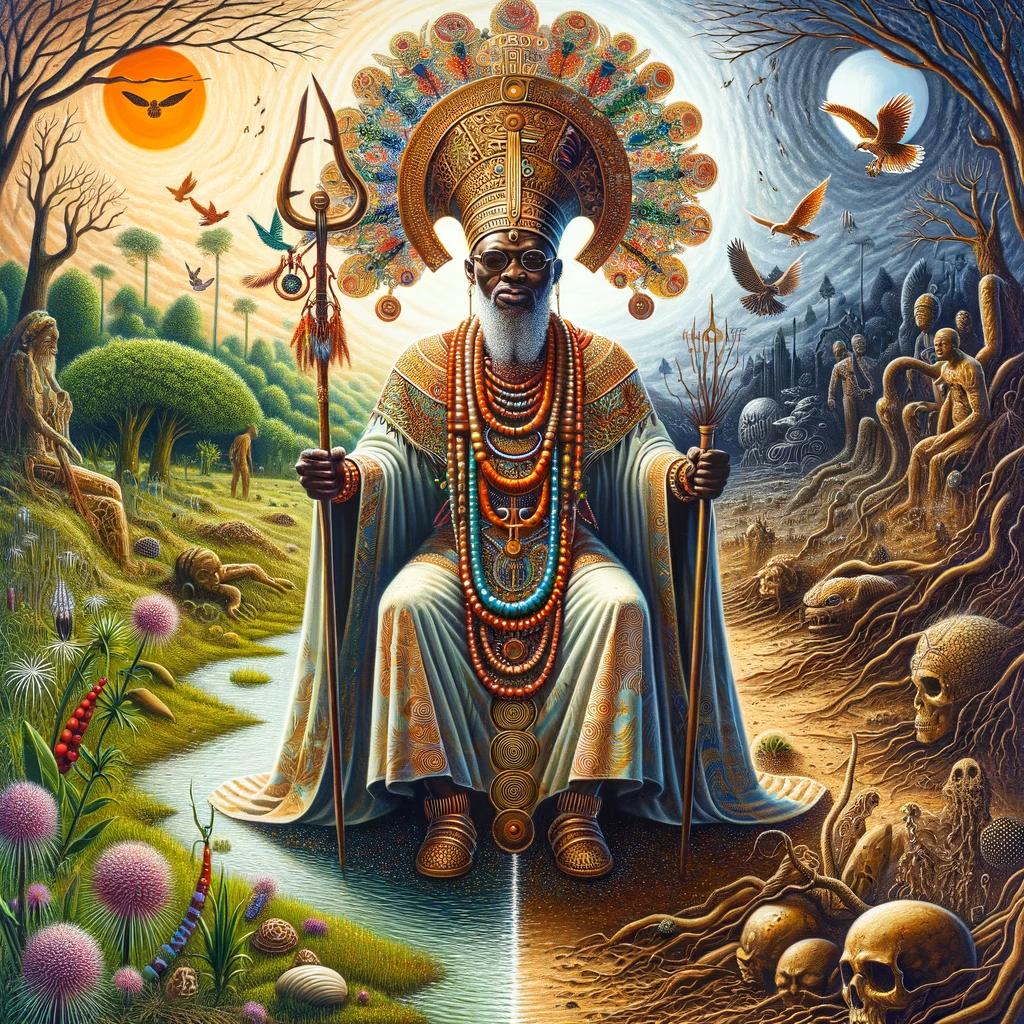Marduk the Babylonian God: The Powerful Deity of Ancient Babylon
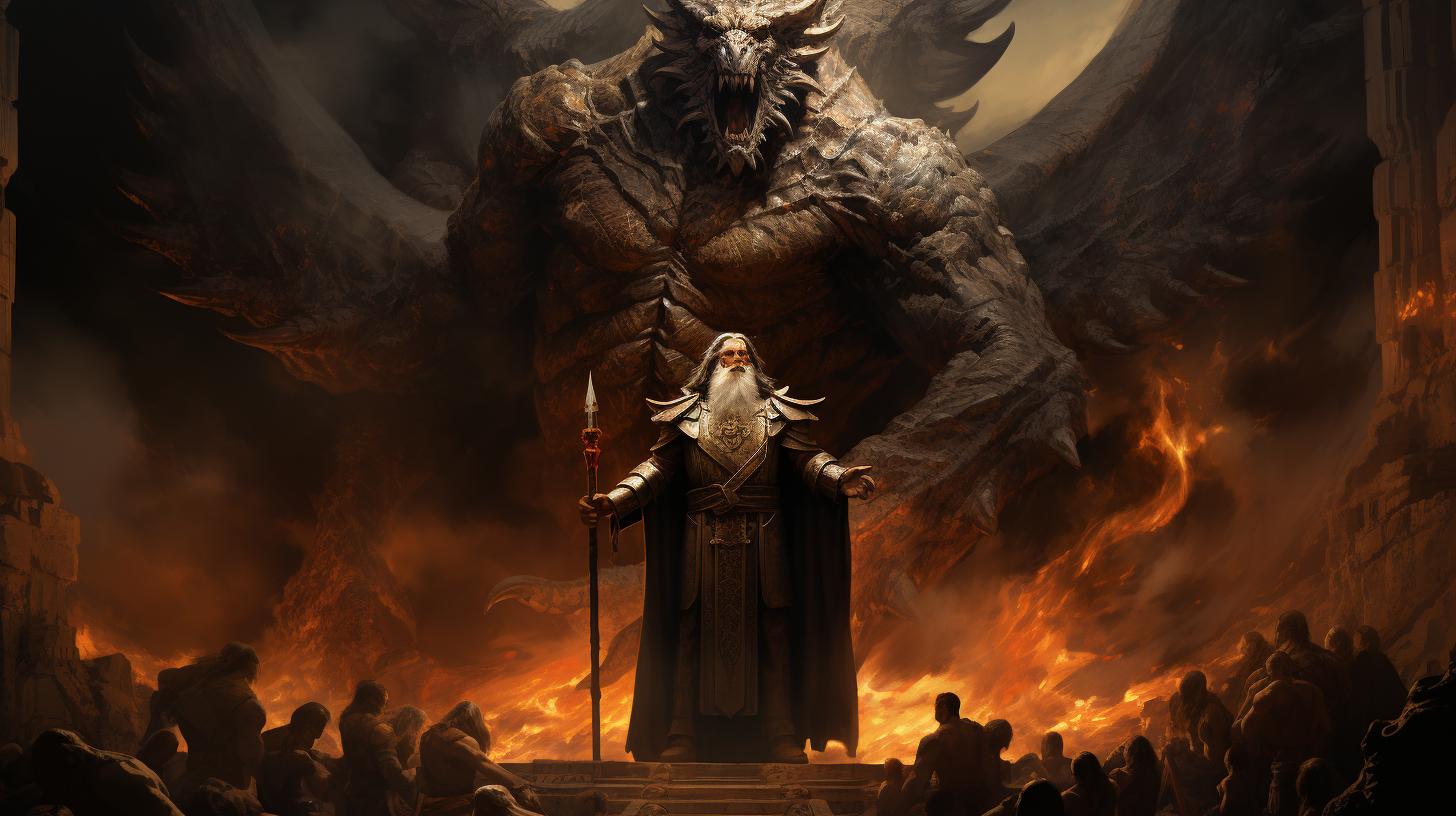
Marduk, the Babylonian god, was revered as the patron deity of Babylon and the king of gods. Associated with justice, compassion, healing, and magic, he was also sometimes considered the god of storms and agriculture.
Represented as a human wearing royal attire, Marduk carried a serpent-dragon and a shovel. Known for his victory over the forces of chaos and his role in creating the heavens, the earth, and humanity, Marduk held great significance in Mesopotamian mythology.
Temples such as Esagila and Etemenanki were dedicated to his worship, and he was recognized by the Assyrian and Persian kings.
Marduk’s Role as King of the Gods
Marduk, the Babylonian god, held the esteemed position of being the king of gods in the ancient Mesopotamian pantheon. As the ruler of the gods, Marduk was revered as the highest authority, embodying power, sovereignty, and divine leadership.
His status as the king of gods bestowed upon him great respect and influence among both gods and mortals.
In this role, Marduk held the responsibility of maintaining cosmic order and ensuring the harmony of the universe.
He provided guidance, protection, and governance to the other deities, as well as the entire realm of existence. Marduk’s kingship extended to all aspects of life, from the heavens to the earth, and even the underworld.
As the king of gods, Marduk was not only a figure of authority, but also a source of inspiration and guidance for mortals. His role as a divine ruler established a fundamental hierarchy, with Marduk at the helm, symbolizing the divine order and the ultimate source of wisdom and justice.
The divine kingship of Marduk positioned him as the central figure in the spiritual and societal life of ancient Babylon, with his authority and power deeply ingrained in the religious and cultural fabric of the civilization.
Various Aspects and Attributes of Marduk
Marduk, the Babylonian god, possessed diverse characteristics that embodied both benevolence and power. These aspects showcased his significance within the Mesopotamian pantheon.
Marduk’s Association with Justice, Compassion, Healing, and Magic
- Justice: Marduk was revered as the epitome of fairness and righteousness, presiding over celestial and earthly matters.
- Compassion: The god’s divine nature extended to compassion, providing solace and assistance to those in need.
- Healing: Marduk’s divine influence encompassed the realm of healing, providing comfort and restoration to the afflicted.
- Magic: Revered as a powerful magician, Marduk possessed extensive knowledge of magical arts, bestowing his blessings and aid through mystical means.
Marduk as a God of Storms and Agriculture
- Storms: Marduk was associated with the tempestuous forces of nature, symbolizing both their destructive and transformative potential.
- Agriculture: As an agricultural deity, Marduk represented the fecundity of the land and the prosperity it brought.
Through Marduk’s embodiment of justice, compassion, healing, and magic, as well as his domain over storms and agriculture, the Babylonians revered him for his multi-faceted influence over both natural and supernatural realms.
Summary and Significance of Marduk in Ancient Mesopotamia
Marduk, the Babylonian god, held immense importance in the ancient Mesopotamian pantheon. As the patron deity of Babylon and the king of gods, Marduk played a central role in the religious and cultural life of the region.
His various attributes, including justice, compassion, healing, magic, storms, and agriculture, showcased his multifaceted nature.
Marduk’s victory over the chaos represented by the goddess Tiamat solidified his status as a powerful and divine figure.
He was not only the creator of the heavens, earth, and humanity but also the one who established order and organized the cosmos.
Worshiped in prominent temples like Esagila and Etemenanki, Marduk’s influence extended beyond the religious realm.
He was associated with the planet Jupiter and revered by the kings of Assyria and Persia, who reconstructed many of his temples.
This Babylonian god’s significance in the ancient Mesopotamian culture cannot be overstated.
His portrayal as a human with royal attire, carrying a serpent-dragon and a shovel, added to his iconic status. Marduk’s syncretization with Greek Zeus and Roman Jupiter further highlights his prominence.
In conclusion, Marduk the Babylonian god epitomized power, creation, order, and divine rulership. His multifaceted attributes, symbolic representation, and widespread worship reflect his central role in the religious and cultural landscape of ancient Mesopotamia.
.

